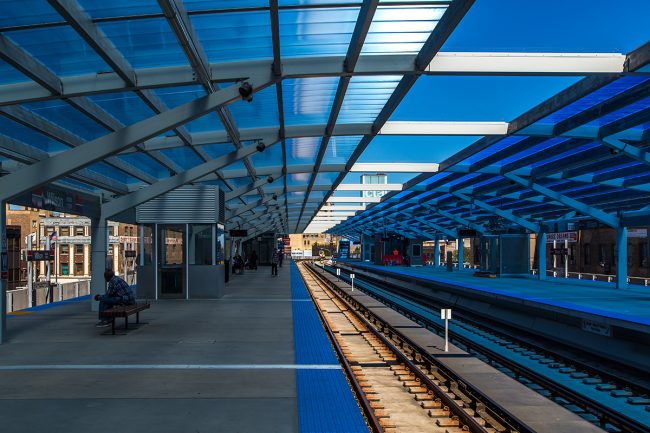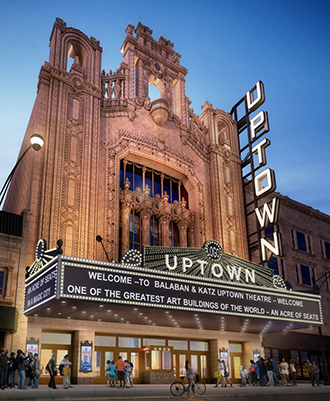Voters on Tuesday delivered a mixed verdict on the rush of new development that has transformed the Uptown neighborhood during the eight years it has been represented by Alderman James Cappleman (46th).
With 38 out of 40 precincts reporting late Tuesday, Cappleman led the pack of six candidates with about 44 percent of the vote. Scientific research consultant Marianne Lalonde was running in second place, with just over 18 percent, according to the Chicago Board of Election Commissioners.
If Lalonde maintains her roughly 150-vote lead over elementary school teacher Erika Wozniak, she will face Cappleman in a one-on-one runoff election April 2.
The five candidates who entered the race to unseat Cappleman all challenged his legacy of wooing wealthy residents by approving construction of more than 1,000 market-rate apartments in the diverse neighborhood.
Cappleman took over the ward in 2011 from Helen Schiller, a frequent critic of former Mayor Richard M. Daley who cultivated thousands of units of low-income housing in the North Side neighborhood. Eight years later, the signs of Cappleman’s change in course are everywhere.
JDL Development’s gleaming Eight Eleven Uptown building gives 25th-story renters panoramic views of single-room occupancy hotels and Section 8 units below. Signs for a new food co-op are plastered to the windows of the CTA Wilson Red Line station, whose reconstruction wrapped up in 2017 after three years and $200 million of work. Stewart Elementary School, which the city shuttered in 2013 as part of a wave of school closures, was reborn last year as the Stewart School Lofts, where airy studio apartments rent around $1,700 apiece.

The renovated Wilson Red Line Station (Credit: Wikipedia)
The alderman also gave developer Clayco the green light for a 149-unit apartment complex at Sheridan and Wilson Avenues, and he approved a 197-unit building at Wilson and Broadway. Both developers built the minimum number of on-site affordable units required by city code, and Cappleman argued the firms would help more people by paying into the city’s Affordable Housing Trust Fund, which targets poorer renters.
Cappleman’s challengers also criticized the alderman for approving $16 million in tax increment financing, a public funding tool meant to kick-start development in “blighted” areas, to help finance the construction of Eight Eleven Uptown.

The Uptown Theater
He also dipped into TIF and other public funding sources to reach a deal with Farpoint Development to launch a $75 million restoration of the historic Uptown Theatre.
If Cappleman is re-elected, it’s unclear whether he will keep the City Council Zoning Committee chairmanship he assumed when disgraced Alderman Danny Solis (25th) stepped down last month. Cappleman immediately asserted his authority over the committee by announcing that he would not bring the 54-acre Lincoln Yards proposal to a vote for approval unless Sterling Bay makes more allowances for affordable housing.
Wozniak-Francis, who centered her campaign around boosting funding for public education, was Cappleman’s best-funded challenger. She was backed by the Chicago Teachers Union and Service Employees International Union.
Also in the running were human resource analyst Angela Clay, non-profit director Justin Kreindler and ward resident Jon-Robert McDowell.
